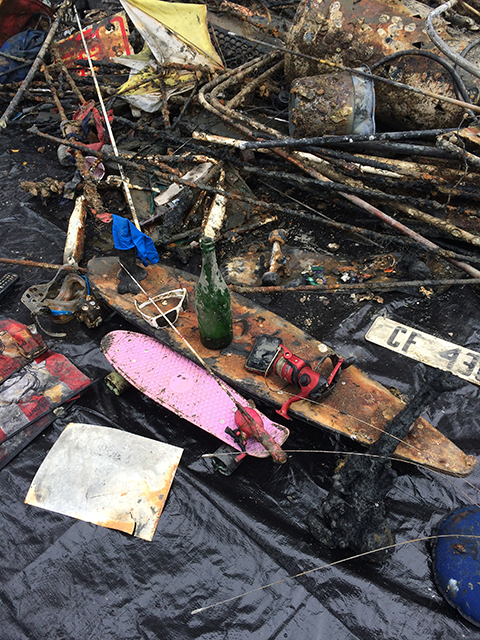One of the less well-stewarded gifts of God is the ocean. While people tend to believe pollution only ever affects the ocean directly when visiting the beach, the truth begins with land-based waste.
Respecting the ocean
First, beautiful underwater ecosystems become notorious scuba tourist attractions. Eventually, they tend to degenerate into “dead zones,” or areas of water where no life can exist, let alone thrive.
To combat this blatant unfairness, countless environmental organizations have banded together to save the ocean they have come to love. Biola’s Dive Club partakes in an initiative called the Dana Point Harbor Cleanup for this exact reason. The annual Our Ocean Conference takes place in Washington D.C. this year on Sept. 15 and 16, with Secretary of State John Kerry speaking as well.
Masha Andrievskaya, junior anthropology major and president of the club, has led Biola’s Dive Club for two years, and stresses protecting the ocean as much as divers can throughout their visits. While safety remains their primary concern, caring for the ocean they know and love falls as a close second.
“I dive in the Red Sea a lot. Definitely when I started, there was a lot more reef, a lot more fish. Then I went back a couple years ago. A lot of it was dead, a lot of it was broken because of divers,” Andrievskaya said.“People just take stuff or they break stuff because they don’t know how to act underwater. And there’s also a lot of trash.”
Kristen Granger, junior engineering physics major, dives with the club as well. While she acknowledges the need to avoid littering by the ocean, her main concern rests in keeping the earth as a whole clear of waste.
“One major thing is that we want to be responsible divers and steward the ocean and being part of Biola as a club, we want to be respectful,” Granger said. “And yes, our main draw to the club is fun and recreation and stuff, but there are responsibilities that come with playing in the ocean and being at the beach.”
Affecting the greater ecosystem
Granger explained how even small things like land waste can affect the greater ecosystem due to runoff from rare California rainfalls. Approximately 80 percent of ocean pollution begins with land waste — fertilizers, car wash soap and pesticides.
“You’re not supposed to go in the ocean at certain times because I’m pretty sure it takes the runoff from the city and then it comes down in those canals and into the ocean. It raises bacteria levels,” Granger said. “Especially in California, when it doesn’t rain that often. There’s just that build-up of all the crud in LA, of course, and it all gets washed into the ocean.”
The Biola swim team visited Back Bay in Newport Saturday, Sept. 10, making note of the differences between the clean pool they are used to enjoying and the salty nature preserve the bay had to offer. Bethany Harper, freshman nursing major, joined the swim team on their excursion but noted very little pollution in the nature preserve they intentionally visited.
While the Biola Scuba Divers do visit mostly nature preserves in the area for highest quality diving opportunities, they make it a point to steward the ocean well regardless of preservations and status of polluted waters.
“I think the way [pollution] should affect us is we should learn how to be better divers and how to take care of the ocean. Turn off the water when you brush your teeth, kind of thing. And do clean-ups,” Andrievskaya said.







